In this post, we’ve reviewed the best salt-free water softeners to help you overcome the issue of hard water in your home.
Hard water is a reality faced by millions of people all over the world. Natural deposits found in ground water can accumulate over time in pipes and valves, as well as in machinery and appliances ranging from tea kettles to water boilers.
Kitchen utensils, as well as bath, drainage and sewerage fittings can also be affected. To avoid costly maintenance or replacement, a wide range of salt-free water softeners have been introduced on the market to help people avoid the problems caused by hard water.
In addition to damage caused to pipes and taps, hard water can cause considerable damage to fabrics, bedsheets, clothes, carpets and other materials. More and more detergent is also needed because the mineral deposits of hard water form scale and scum and prevent thorough, effective cleaning of whatever is being washed.
Finally, build-up not only prevents efficient water flow in pipes and hinders the operation of appliances, build-up leaves stains and marks on surfaces such as sinks, mirrors, glass and other bathroom exteriors. Despite all these facts, this costly problem can be prevented using the right tools and fixtures.
Table of Contents
- Top Rated Salt-Free Water Softeners
- Advantages and Disadvantages of Salt-Free Water Softeners
- Water softeners: salt vs salt free
- How to Choose a Salt Free Water Softener
- How salt free water softeners work
- Final recommendations and Conclusion
Top Rated Salt-Free Water Softeners
There are different ways to tackle the problem of hard water. Some systems, such as various Fleck water softeners or WaterBoss softeners, remove all of the salt and all the deposits from water in household pipes using ion exchange.
The deposits are collected in pellet form and are removed on a regular basis so that only treated water flows through pipes, faucets, and appliances.
Other salt-free water softener systems act as a simple water filter and remove micro fragments, debris and other impurities. Such systems are usually cheaper than salt-removal systems, and are also smaller and can fit under an individual sink.
However, these systems usually have much lower water volume limits and cannot cater to entire households. Finally, there are systems that help reduce salt deposits or treat water to reduce the impact of hard water.
These systems work as descalers or water conditioners and are good options depending on your water needs. Here are additional details on some of the options you should consider.
1. Eddy Electronic Water Descaler – Best Water Softener Alternative

Depending on geographical location, different levels of lime scale can develop on sinks, faucets and showers. Dissolved magnesium, calcium, and manganese compounds found in hard water are the cause, and they are not only unpleasant to have on surfaces but they restrict water flow and can reduce the efficiency of water heaters and furnaces.
This electronic water descaler from Eddy is easy for anyone to fit, requires no plumbing changes or other adjustments to pipes or fittings, does not require any salt and costs much less than conventional salt-fed water softeners.
By producing a complex electro-magnetic wave which is applied through two coils placed round your incoming water supply pipe, your incoming water is subjected to an ever-changing magnetic field which changes the adhesion properties of the limescale so that it no longer deposits itself on your clean surfaces, inside pipework, and in or on appliances.
The chemical hardness of the water is not changed, so beneficial minerals such as calcium are retained. This particular device has been successfully used worldwide in thousands of homes and businesses for over 15 years, is highly economical, and is considered by many to be the best environmental-friendly solution to salt-based water softeners.
It also comes with a risk-free, 12-month money-back guarantee, as well as a lifetime repair or replace guarantee.
2. Aquios FS-220 Salt-Free Softener and Water Filter System

The Aquios FS-220 salt-free water softener is designed for the treatment of water for the entire household. Housed in a modern, space-saving design, it boasts commercial-strength technology and ensures that physical deposits and sediment, as well as chlorine and other unwanted impurities are removed from your water.
It provides pure and healthy water to you and your family while ensuring that calcium, magnesium and other minerals dissolved in hard water do not build up in fixtures and pipes. The Aquios FS-220 softener is different from salt-based systems and does not remove dissolved minerals.
A special additive prevents build-up in faucets, internal pipes, water-using devices, shower heads, toilet basins, glass and mirrors, and other surfaces. The result is that instead of building up quickly, more minerals pass through the systems instead of being deposited along the way.
The water will feel noticeably softer, but at the same time it will not have the slippery feel that is often the case with salt water softeners such as RV water softeners or highly popular Fleck systems.
A carbon block water filtration system, when combined with water conditioning, delivers a solution suitable for the entire household. With no pressure loss, sleek design, no need for programming, electricity or maintenance, this system is a market leader and has a 20-year warranty as well. Each cartridge lasts for about 6 months for the average house and can process 40,000 gallons.
3. Clearwave CW-125 Salt-Free Electronic Water Conditioner

This is a very different kind of salt-free water treatment system. It is a revolutionary product that treats hard water without the use of salt or chemicals, as used by traditional hard water systems. This system targets hard water particles with electromagnetic waves, treating the entire water system in your home and in the process it reduces the problems caused by hard water.
By neutralizing calcium and magnesium particles in hard water, scale buildup is controlled. After treatment by the ClearWave Water Conditioner, dissolved minerals stay in the water instead of sticking to surfaces and pipes and they flow all the way to the drain or other water flow outlet. This water conditioner is much smaller, lighter and cheaper than other systems.
Installation is easy, overall reviews are generally quite positive, and all you have to do is plug it in and you are good to go. Many customers praised the ease and simplicity of this system and were satisfied with the end result.
Advantages and Disadvantages of Salt-Free Water Softeners
For the most part, salt-free softeners are cheaper than salt softeners. The difference can be as much as several hundred dollars, which is a large enough of an amount for some customers to consider other options. The associated hassle is also less, since there are no salt pellets or collection bins that require removal or replacement.
Further, these systems are generally smaller, lighter, and are installed more easily than salt-based systems. You can usually install these systems without any plumbing know-how, and you can complete installation in a few hours, that too without changing, removing or adding any new pipes, valves or other fittings.
As for disadvantages, one issue is that these systems often reduce deposited minerals from hard water, or they simply reduce lime scale and scum build-up (instead of completely cleaning the hard water of all dissolved calcium, magnesium and other minerals).
As a result, water flow may be improved, as well as the lifetime of pipes and appliances, not to mention less mess on mirrors, tiles and other surfaces. However, over a long enough timeline, scum and lime scale will still build up. Finally, the amount of water that can be treated is sometimes less than the volumes that salt-based systems can manage.
So where salt-based systems usually handle the water needs of an average household of 5-6 people, some of the salt-free water softening systems can only manage water for 2-3 people, or if used at a standard house that has half a dozen people, you may need to clean and de-scale fittings more frequently (within as early as six months or so).
Water softeners: salt vs salt free
At this point you may be wondering if the best choice is indeed a salt water softener or a salt free water softener. The answer lies in understanding how the two systems work.
Salt water softeners?work by a process called ion exchange. The calcium and magnesium ions are removed from the water and exchanged with sodium ions.
Sodium, as you know, is the element metal in sodium chloride, which is table salt.
There are a couple of issues here: the taste of the water will slightly be altered due to the added sodium, and if for health issues you’re trying to cut back sodium, this will cause a problem.
These issues can be solved by adding an RO water filtration system or something similar after the softening stage, so the sodium is removed as well.
Salt systems are very effective though because they can remove very high amounts of mineral concentrations without any problems. The only thing you need to do is replenish the salt every so often as it will run out as it softens water.
Salt-free water softeners don’t remove the minerals, but instead modify them so they no longer stick to pipes – nullifying the adverse effects of hard water.
The minerals stay in the water, they just won’t stick anymore.
The obvious issue here is that they are not as effective as salt-based systems.
How to Choose a Salt Free Water Softener
The advantages above make a pretty strong case for choosing a salt free system over a traditional salt-based system. Lower price, easy installation, less maintenance cost and hassle, decent volume of water treated per cycle, duration of warranty.
Additionally, an overall satisfactory level of water softening in the home are understandable reasons why thousands of people have chosen salt free systems over salt systems even though those are more heavy duty.
The first thing you want to figure out before getting a salt free water softener is how hard the water in your house is. This will help you determine if the softener type you’re looking for will actually soften the water to the level you need or not.
Here, we’ll go into a little bit more detail on how to figure these things out and how to pick the best water softener for your particular needs.
Grain rating
Water softeners – salt free and otherwise – are usually given a grain rating. This indicates how many “grains” of minerals can be filtered using the device before having to clean out the filtering area.
Normally, water softeners are designed to flush themselves so you don’t really need to worry about this, but since you’re looking for a salt-free water softener, you’ll have to manually do the flushing process.
To test how many grains are in your water, you can pick up a water testing kit.
In the United States(and most likely elsewhere too), you can call the city or municipality department that handles water and ask them how many grains they allow in their filtering and treatment system.
Unfortunately, the level of grains per gallon permitted will vary from one city to the next, and sometimes with a lot of variance. You may find one city that allows 15 grains per gallon, where others may allow twice as much.
For this reason, it’s always best to call and find out, or if you’re still in doubt, just use a water testing kit and test a gallon of water at home.
15-20 grains per gallon is quite normal and should not pose any issues whatsoever for your softening system to handle.
Determining if you have hard water
While you need a test to get the exact number of grains per gallon, it’s not difficult to tell whether you have hard water or soft water. Hard water causes limescale buildup in your plumbing, on your taps and handles, in your appliances, and your laundry.
A quick test is to heat up a pan and put a few drops of water in it. As the water completely boils off, you’ll see some whitish residue left behind – the salts in the water.
If there is a lot of residue, you have hard water. If there is very little residue, then the problem is not quite as bad and you have mostly soft water.
Hard water will cause your clothes to get dingy and you’ll notice your skin and hair are drier and weirder after taking a shower.
At this point you may be wondering: I already have a water softener, but I’m still seeing some of these issues! What’s wrong?
You just may have excessively hard water and the grain count is too much for a single system to handle. In this case, you’d need to parallel your water softeners by adding a second system that is fed from the outlet of the first system.
Sounds extreme, right? But what can you do? That’s just how much of an issue hard water is.
Flow rates
If your water softener hooks up to the main line in your house, you may first need to consider how much water is flowing into your house at any one point in time.
Machines with lower flow rates can result in the water pressure decreasing, especially if you’re trying to use water in more than one location at once.
For example, a shower uses about 2 gallons of water per minute. If you have 2 bathrooms and need to use the shower in both at the same time, your water softener needs to have a flow rate of at least 4 gallons per minute to maintain the existing water pressure.
This is a very, very conservative estimate and a more realistic number is to count 4 gallons of water for a single person living alone. Every additional person requires another 1 to 2 gallons, so for a couple with two kids, you need around 8 to 10 gallons per minute.
How salt free water softeners work
In order to soften water without using any kind of salts, you have 4 options:
- Filter and soften using polyphosphates
- Full water filtration systems
- Softening with electromagnetic waves
- Softening with magnets
So how exactly is water softened, anyway? Are the minerals that cause hard water completely removed? In some cases, yes, the minerals are removed.
However, minerals are not exactly harmful(in the right quantities, they can be beneficial, too). The only reason you really want to soften water is for the potential problems they cause in your appliances, clothing, and sometimes on your skin.
Instead of removing minerals, some water softeners only neutralize them to the extent that their harmful effects are no longer present. Now, since the hard water won’t cause limescale buildup, it is considered soft(er) water.
Polyphosphates
Polyphosphate water softeners work by using special chemicals called polyphosphates which form a protective layer around the minerals so they can no longer stick and build up anywhere.
One disadvantage of this kind of softener, as you must have realized, is that you need to keep replenishing the polyphosphates. These water softeners work in two stages: a filter catches larger molecules and calcium and magnesium pass through to get coated by the polyphosphates.
These systems are not suitable for removing iron or sulfur, nor do they remove chlorine, bacteria, pesticides, or viruses. For that, you’ll?need to have an RO filter.
The only thing polyphosphate water softeners will do is prevent magnesium and calcium from building up anywhere in your home. As a result, these filters are a good choice?only if you know that the water is otherwise safe and all you need is a means to soften the water.
Full-featured water filter
These filters are a step up from the polyphosphate-only systems in the sense that they not only soften the water, but they also remove other impurities. These are all-in-one solutions.
When water goes through this system, the calcium and magnesium gets crystallized to the point it can no longer stick to anything. More filters then remove chlorine, pesticides, viruses, and bacteria, too. The number of filters may vary and the best solution would be to check the exact product specifications to see what is removed and what isn’t.
Because the filters are catching debris, you’ll need to change them out every so often – up to once or twice a year depending on your model. Additionally, these filters?do have polyphosphates so you need to change those out as well.
Full featured water filtration is ideal for homes that get municipal water and you wish to clear out any impurities before drinking and using it.
Electromagnetic and magnetic filters
Electromagnetic filters use electricity passed through coils to generate a magnetic field. The magnetic field will interact with the minerals and clump them together in the water so they won’t stick to any surfaces.
These filters are not as effective as polyphosphate filters, so if your water is greater than 15 grains per gallon, it will not be able to soften it to the extent you are looking for.
Instead, these softeners are more suited for using as a final stage for clearing out any remaining particles from earlier filtration and softening stages.
Plus, unlike regular salt free water softeners, these will require to be plugged into an electricity source.
Magnetic water softeners work largely on the same principle except they use magnets attached to the pipes instead of an electric current to generate a magnetic field.
Out of the whole lot, these deliver the poorest results but like electromagnetic systems, these are good for acting as a final catch-all stage after multiple layers of filtering.
Final recommendations and Conclusion
There are many different salt free water softeners available in the market. Some are cheaper than others, some can handle higher water volumes than others, and some have higher ratings than others.
However, on the whole, our recommendation is that you go with the Aquios full house salt free water softener and filter system. It is a little more expensive than similar salt free systems, but the commercial-strength of softening, the compact design, the ease of use and installation, and the treatable water volume that all come with a 20-year warranty make this a hard system to beat.
Unless you really want to go for a high-end salt-based system and pay a few hundred dollars more for it, if sticking with a salt free system is what you want to do, then the Aquios water softener is a great deal and will do the trick for all your household, water softening, filtering and lime scale/scum removal and reduction needs.

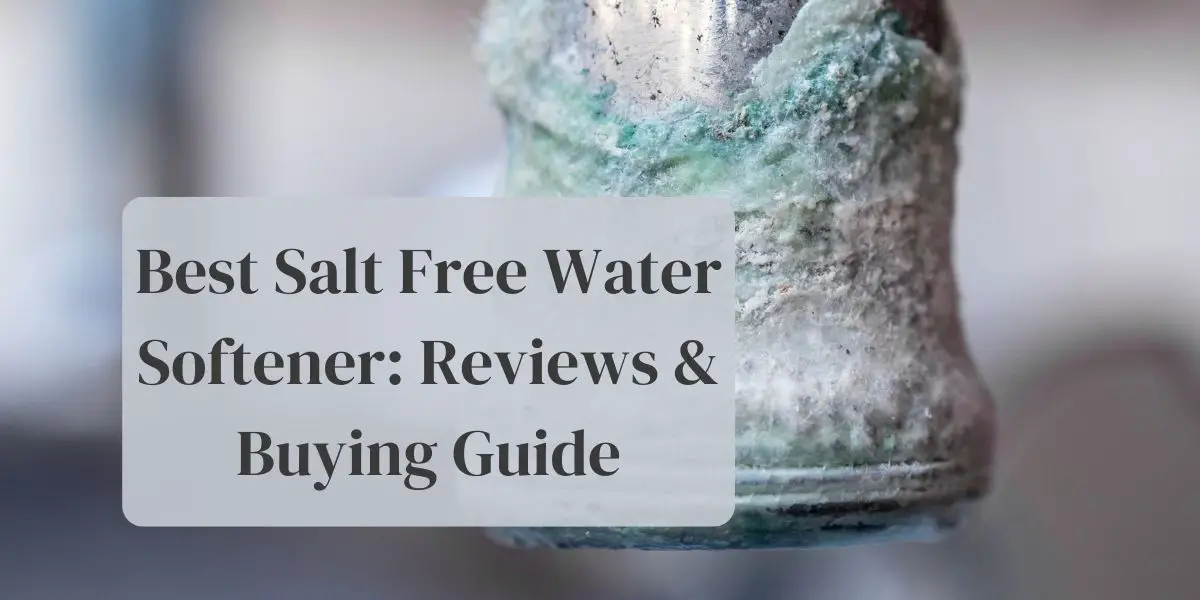
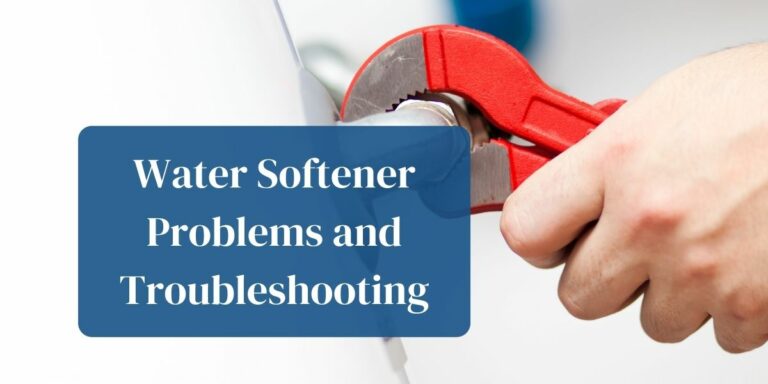
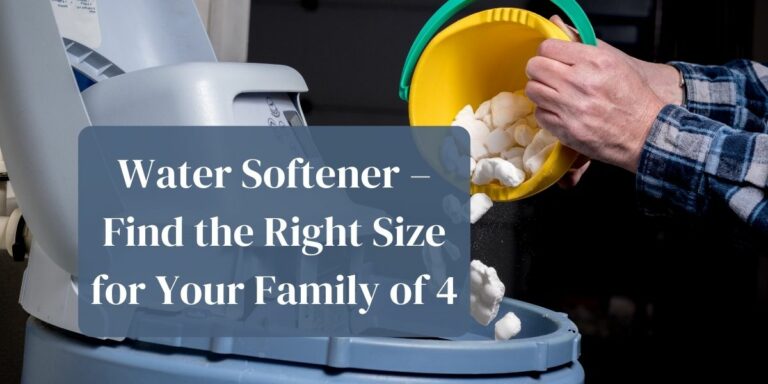
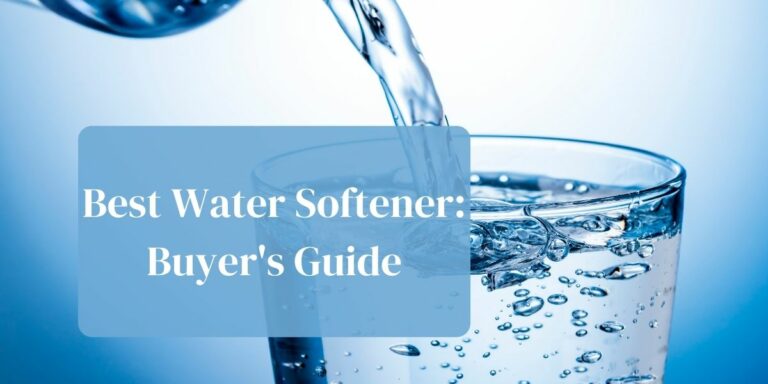
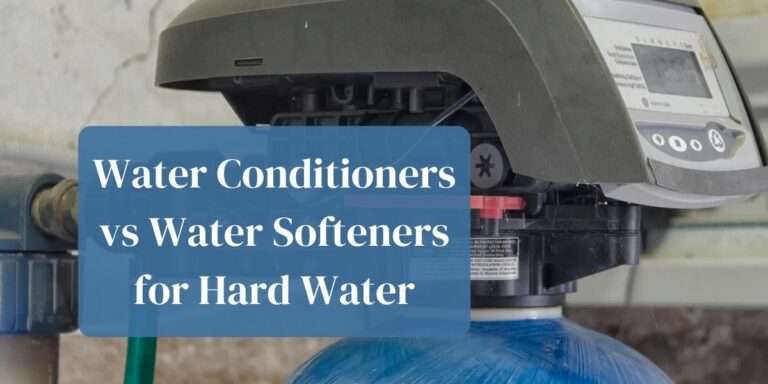
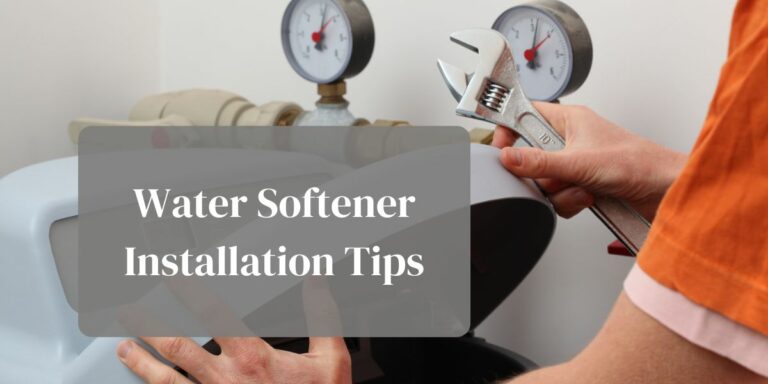
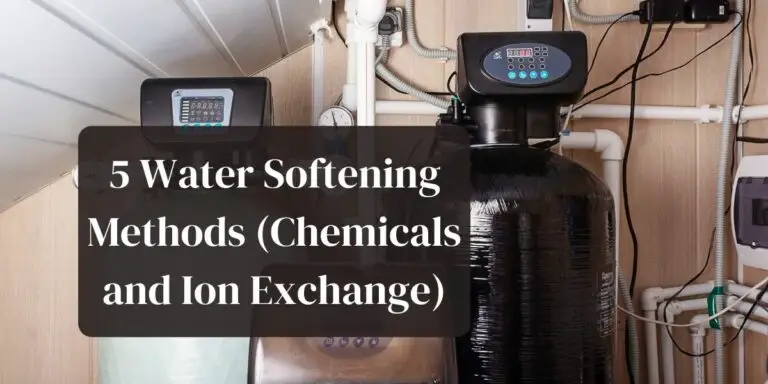

We have hard water from our well and I am looking to fix it, thank you for writing this review it made my choice so much easier. Thank you for writing this!
I installed #3 and am happy with it, since using we have been able to easily see the water change.